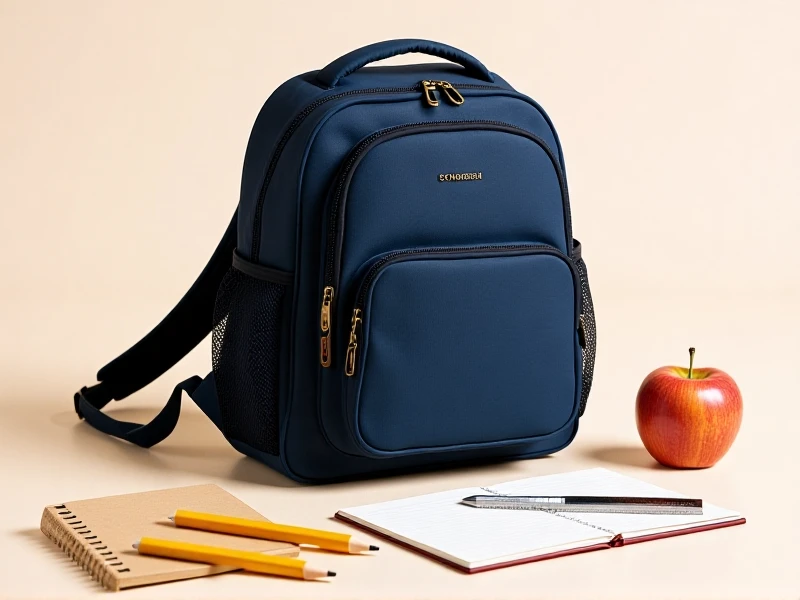
Your Backpack Buying Guide: Find the Perfect Fit
Okay, here is a natural-sounding, SEO-optimized article targeting the keyword "Backpack", designed to appear human-written and valuable for readers:
Finding the ideal backpack isn't just about throwing your stuff in a bag. The right companion can make your commute effortless, unlock trail adventures, keep your gear organized on the road, or ensure your laptop arrives safely. With so many options available, navigating the choices can seem complex. But by focusing on your primary needs, you can confidently select the backpack that becomes a trusty partner for your life.
Why the Right Backpack Matters A poorly chosen backpack causes more than just discomfort; it can lead to back and shoulder strain, disorganized chaos, and even damaged belongings. The perfect one, however, solves these problems. It distributes weight comfortably across your shoulders and hips (especially important for heavier loads), protects your valuables, offers intuitive organization, and stands up to your lifestyle demands. It becomes an extension of your daily rhythm.
Understanding Backpack Types The first step is identifying the purpose:
- Daypacks & Commuter Backpacks: Your daily workhorses. Designed for laptops (look for padded sleeves), files, lunch, and essentials. Organization reigns supreme here, with multiple compartments for pens, keys, phones, and water bottles. Often feature sleek aesthetics suitable for the office.
- Hiking & Outdoor Backpacks: Built for adventure. Expect features like hydration bladder compatibility, trekking pole attachments, durable materials (ripstop nylon, reinforced stitching), ample capacity (usually 20-50 liters), comfortable hip belts and padded shoulder straps. Ventilation systems help manage sweat.
- Travel Backpacks: The suitcase alternative. Often larger capacity (40-70 liters) with clamshell openings for easy packing. Focus on comfort during long haul wear and organizational compartments for clothes, tech, and toiletries. Many are carry-on compliant.
- School Backpacks: Designed to haul textbooks, binders, and laptops. Durability and ergonomics are crucial for growing spines. Look for reinforced bottoms and padded straps.
Essential Features to Consider
- Size (Liters): Match this to your typical load. Don't over-size wildly, as a half-empty backpack loses its structure. Under-sizing forces overstuffing.
- Comfort: The MOST critical factor alongside durability. Look for:
- Padded Shoulder Straps: Wide and adjustable.
- Sternum Strap: Helps distribute weight and stabilizes the load.
- Hip Belt: Vital for heavier loads (hiking/travel) – transfers weight effectively off shoulders.
- Material & Durability: Water-resistant fabric is a huge plus! Common materials include ripstop nylon, polyester, or canvas. Check stitching quality.
- Organization: Do you need a dedicated laptop sleeve? Water bottle pockets? Quick-access compartments? Inner organizational pockets? Think about your specific items.
- Opening Style: Top-loaders are common for hiking; panel or clamshell openings offer full packing access (great for travel/commuting).
- Hydration Compatibility: Crucial for hikers – a sleeve inside and port for the hose.
Keeping Your Backpack in Top Shape To ensure your backpack lives a long life:
- Don't exceed its weight capacity (usually indicated).
- Clean regularly: Follow manufacturer instructions. Spot clean often. Empty and air it out after sweaty hikes or travels.
- Store lightly stuffed or hanging: Avoid crumpling it into a ball.
A thoughtfully chosen backpack is a game-changer. It declutters your journeys, protects your gear, and supports your body. By considering your core needs and prioritizing comfort, durability, and smart organization, you'll find the perfect pack ready to carry your world. Take the time to try different sizes and features – your back (and sanity) will thank you!
FAQ
- What's the best size backpack for commuting? 20-30 liters typically suffices for a laptop, lunch, and essentials.
- Is a hiking backpack suitable for daily use? Often overkill for pure commuting (bulky, many straps), but daypacks are versatile.
- How long should a good backpack last? Well cared for, a quality backpack from a reputable brand should last 5-10 years. Check warranties!